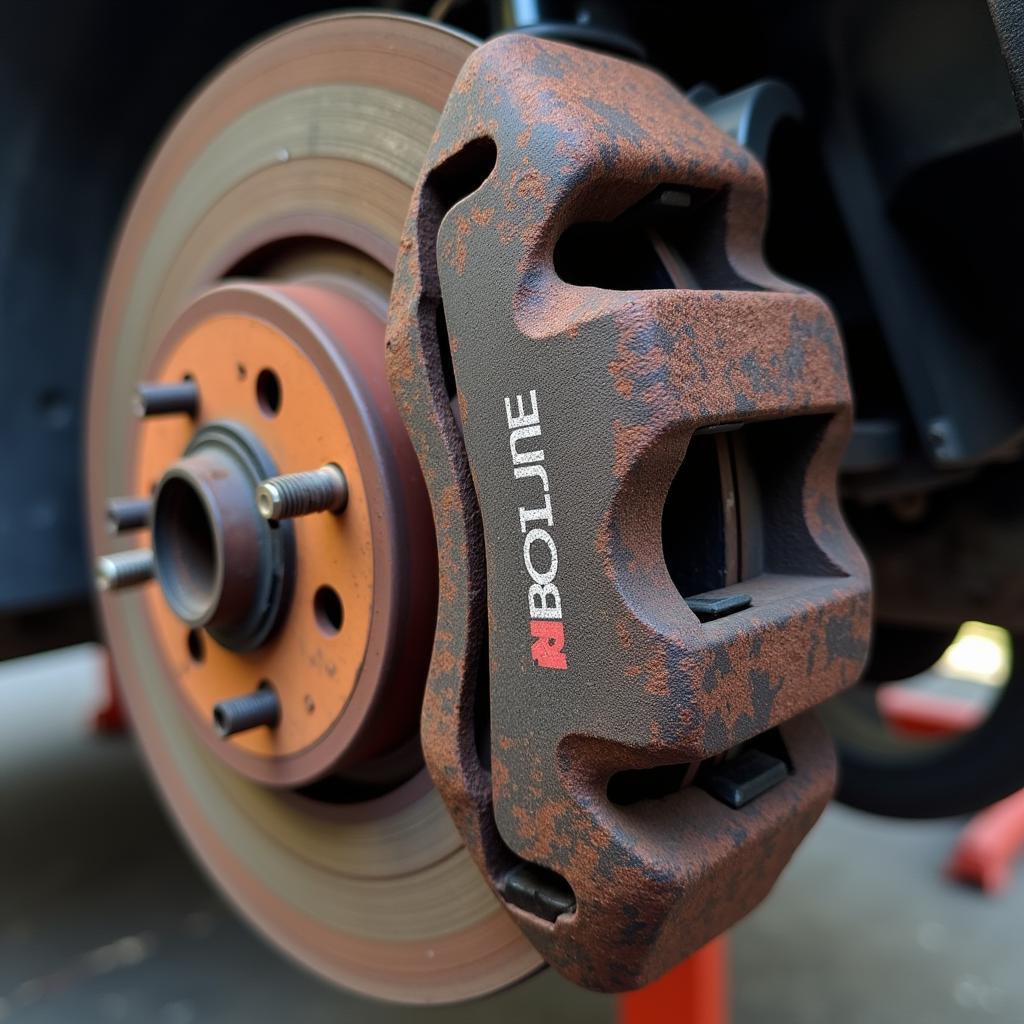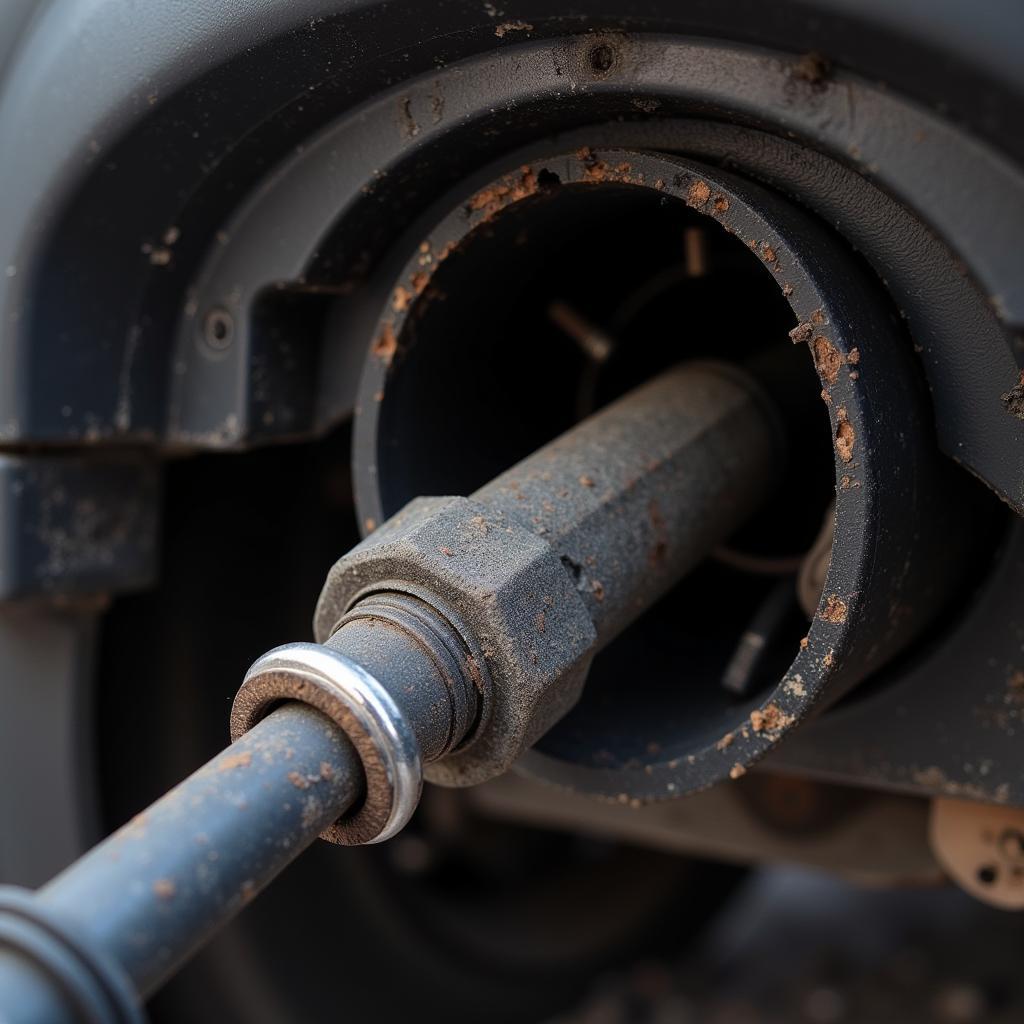Buying a used car can be a great way to save money, but it’s crucial to be aware of potential problems that can arise. From mechanical issues to hidden damage, understanding the common pitfalls can help you make an informed decision and avoid costly repairs down the road. Let’s dive into the world of used car problems and equip you with the knowledge you need to navigate this market effectively.
What are some of the most common problems with used cars? Everything from minor cosmetic issues to major engine failures can occur. Knowing what to look for and how to address these issues can save you time, money, and frustration. problems with used cars This guide provides valuable insights into identifying and resolving common problems, helping you make the best decision when purchasing a used vehicle.
Common Mechanical Problems with Used Cars
Mechanical problems are often the most dreaded and expensive issues with used cars. Here’s a breakdown of some common culprits:
-
Engine Troubles: A worn-out engine can manifest in various ways, including poor fuel economy, strange noises, and difficulty starting. A thorough inspection by a qualified mechanic is essential to assess the engine’s condition.
-
Transmission Issues: Problems with the transmission can lead to jerky shifting, slipping gears, and even complete failure. A test drive is crucial to identifying any potential transmission problems.
-
Brake System: Worn brake pads, rotors, or calipers can compromise your safety. Pay attention to any squeaking, grinding, or pulsating sensations when braking.
-
Suspension Problems: A faulty suspension can result in a bumpy ride, uneven tire wear, and poor handling. Check for any unusual noises or vibrations while driving.
 Worn Brake Pads on a Used Car
Worn Brake Pads on a Used Car
How to Identify These Problems During a Test Drive
A thorough test drive is paramount when considering a used car. Here are some things to look for:
-
Listen for unusual noises: Any knocking, grinding, or whistling sounds could indicate underlying problems.
-
Check the steering: The steering should feel responsive and precise. Any looseness or pulling could signal a problem.
-
Test the brakes: Pay attention to how the car brakes. Any squeaking, grinding, or pulsating could mean brake issues.
-
Accelerate and decelerate: Observe how the car performs under acceleration and deceleration. Any hesitation or jerky movements could point to engine or transmission problems.
Electrical and Electronic Issues in Used Cars
Modern cars are increasingly reliant on complex electrical and electronic systems. These systems can also be prone to problems in used vehicles:
-
Malfunctioning Sensors: Faulty sensors can lead to a variety of issues, including poor fuel economy, check engine lights, and erratic performance.
-
Wiring Problems: Damaged or corroded wiring can cause electrical shorts, leading to various malfunctions.
-
Infotainment System Glitches: Problems with the infotainment system can range from minor annoyances to major inconveniences, impacting features like navigation, Bluetooth, and audio.
 Faulty Car Sensor Close-up
Faulty Car Sensor Close-up
Body and Interior Problems with Used Cars
While not as critical as mechanical or electrical issues, problems with the body and interior can still be costly and detract from the overall ownership experience.
-
Rust and Corrosion: Rust can be a significant problem in older cars, especially in areas with harsh winters. Check carefully for any signs of rust, particularly on the undercarriage, fenders, and rocker panels.
-
Paint Issues: Faded paint, scratches, and dents can detract from the car’s appearance and potentially indicate previous accidents.
-
Interior Wear and Tear: Ripped upholstery, worn carpets, and damaged trim can affect the car’s resale value.
lemons problem used car market Understanding the “lemon” problem can help you avoid purchasing a problematic vehicle.
What to Do if You Discover a Problem After Purchase
If you encounter a problem after purchasing a used car, don’t panic. Here’s what you can do:
-
Review the purchase agreement: Check for any warranties or guarantees that may cover the problem.
-
Contact the seller: If the problem is significant, contact the seller to see if they are willing to address the issue.
-
Consult with a mechanic: Get a professional opinion from a trusted mechanic to assess the extent of the damage and the cost of repairs.
what’s the problem with used cars with over 100k miles High mileage cars can present unique challenges. Understanding these potential issues is crucial for making an informed buying decision.
Conclusion: Navigating the Used Car Market with Confidence
Buying a used car can be a rewarding experience if you are prepared and informed. By understanding the common problems associated with used cars and following the advice in this guide, you can make a smart purchase and enjoy your new vehicle for years to come. used car problems within 30 days wisconsin pdf Knowing your rights as a consumer is essential, particularly if you encounter problems soon after purchase. Need further assistance? Don’t hesitate to connect with the experts at AutoTipPro. You can reach us at +1 (641) 206-8880 or visit our office at 500 N St Mary’s St, San Antonio, TX 78205, United States.
what if a recall on my car caused another problem Recalls can sometimes lead to unforeseen issues. Understanding your options and how to address these problems is essential for maintaining your vehicle’s safety and performance.







Leave a Reply